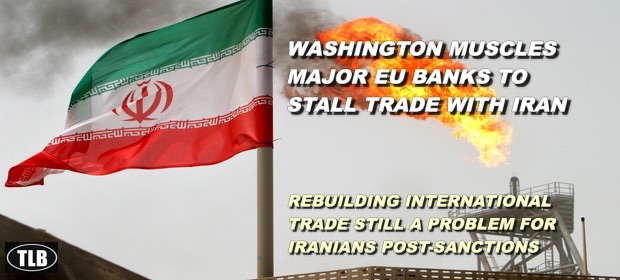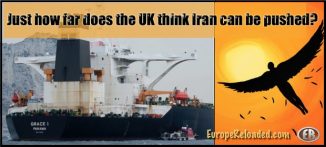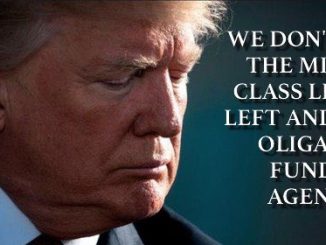
Multilateral sanctions mandated by the UN Security Council were lifted in January, but the US still enforces a number of its own, which complicate the business of doing business.
Jonathan Steele
Tehran – The US Treasury has “somewhat terrorised” European banks into not resuming business with Iran in spite of Western promises to lift sanctions, a senior Iranian official has told Middle East Eye.
Amir Hossein Zamaninia, deputy oil minister for trade and international affairs, accused the US Treasury’s Office of Foreign Assets Control, which oversees the US sanctions programme, of deliberately not clarifying how European banks and investors are allowed to operate in Iran without falling foul of US law.
Multilateral sanctions mandated by the UN Security Council were lifted in January, but the US still enforces a number of its own, which complicate the business of doing business.
“The European banks have some reluctance, let’s say, in terms of not being certain as to what OFAC’s decision will be if they get engaged. It’s more of a psychological problem than a legal one”, Zamaninia said.
The minister’s irritation over the slow pace of sanctions relief, which is mirrored by remarks to MEE from other officiais this week, shows how disappointed the Iranian government, as well as ordinary Iranians, are with the results of last year’s nuclear deal seven months after the promised lifting of sanctions was due to start.
OFAC has still not issued licences for the despatch of Airbus and Boeing passenger jets, which the Iranians have agreed to buy and are eager to receive.
Iran’s supreme leader, Ayatollah Ali Khamenei, accused the US of obstruction in an April speech.
“On paper the United States allows foreign banks to deal with Iran, but in practice they create Iranophobia so no one does business with Iran,” he said.
Four months later little has changed. Iran’s problem is not with getting money owed by foreigners for Iranian goods, or the cash frozen in foreign banks since sanctions were imposed in 2012, according to Zamaninia. That was being transferred to Iran gradually.
The difficulty was that the US Treasury’s actions were stalling new foreign investment and new banking transactions.

He tried to sound optimistic, saying the issue was “being addressed”.
“There are a number of mid-level banks that are working now with Iran and I think little by little the major banks will come along sooner rather than later. When the first major bank makes a move, the others will follow,” he said.
But when asked to name a bank which was close to moving, he said he did not know of one.
The problem is affecting businesses both large and small, as I discovered In the Saleh Abed district of south Tehran. Aidan Baravar has a sales outlet there for the textile business which he runs with his father and other family members. They own a factory in Tabriz in north-western Iran which employs 80 workers making towels and bathrobes.
“We use French and Italian machines which are now twelve years old and need spare parts. Because of sanctions we had to buy Chinese spares sold in Turkey,” he said.
“This spring after sanctions were lifted we met a Belgian machine tool representative at a trade fair in Turkey. We signed a letter of intent to buy four new Belgian machines worth $1.2m”, Aidin Baravar said.
But no progress has been made in the three months since then. The Baravars nominated an Iranian bank to handle the financial transfer but its is still waiting for a Belgian counterpart to take up the European end of the deal.
“The machines are being built to our specifications and the Belgian factory wants to sell to us. But they have to find a way to do business with us in Iran,” Baravar said.
Similar frustration was expressed to MEE by Mansour Moazami, the deputy minister of industry, who also chairs the board of Iran’s major investment organisation, the Iranian Development and Renovation Organisation.
IDRO is a partner in dozens of joint ventures with foreign companies and has been hoping to develop new ones now that sanctions are supposed to be over.
“The increase in foreign investment is below our expectations because the Americans haven’t co-operated. We expect the US to abide by the Joint Comprehensive Programme of Action [the official name for the deal under which Iran curbed many of its nuclear activities in return for the lifting of sanctions]. Our people really expect countries to fulfil their commitments”, Mr Moazami said.
The stage was set for foreign investment in Iran, he insisted, contrasting the country’s position vis-a- vis the rest of the region. “Please look at our neighbours. We are at peace. We have good security”, he said.
Iran has seen a flurry of trade delegations to Tehran this year. Mr Moazami highlighted Italy and Germany as two European Union members which were trading and investing at a much higher level than under sanctions. Ten countries now buy Iranian oil, with France, Greece, Italy and Poland back in the market alongside the five who remained firm purchasers during sanctions in spite of US pressure: China, India, Japan, South Korea and Turkey.
As a result, Iran has won back 80 per cent of the market share of oil it enjoyed before sanctions were imposed in 2012.
It is producing 3.8 million barrels a day, of which about two million are exported. Some Iranian officials have hinted that once Iran reaches its pre-sanctions output of four million barrels a day, it will be sympathetic to the latest talk that the Organisation of Petroleum Exporting Countries (OPEC) may cap production in a bid to raise the international price.

In an interview with MEE, Zamaninia doubted that for two reasons. First, it might seem illogical to fellow Iranians.
“We have recently come out of sanctions and it would be somewhat awkward for Iran to cap its production. For so many years we have been under sanctions and not being able to make full use of our capacities”, he said.
But he acknowledged: “We do have some concerns about the weakness of the international market.”
His second reservation was that Iran probably could not reach an output level of four million barrels per day without new foreign investment.
“I think we are very hard pressed to go above 3.8 million bpd level. We need to make some new investment and increase points of production and enhanced recovery programmes”, he said.
To attract investors the government has developed a new system of contracts, known as the Iran Petroleum Contracts (IPC) which will offer foreign oil companies, among other incentives, a chance to make deals with the National Iranian Oil Company for 20 years or more instead of the current “buy-back” system which generally limits contracts to around seven years.
The new contract prompted stormy arguments in the Iranian parliament, the Majlis, last week. They will not be production-sharing arrangements but service contracts similar to ones which the Iraqi government has signed since the fall of Saddam Hussein.
Some Iranian politicians opposed the bill on national sovereignty grounds that it gave foreigners too much control over Iranian oil, an echo of the arguments which preceded nationalisation in 1951.
Others criticised the government for delay which, they said, risked letting Iraq pump out too much of the oil which the two countries share in off-shore fields that straddle their mutual border.
But after taking questions in a closed-door session Bijan Zanganeh, the oil minister, seemed to convince MPs that the bill is acceptable. The Majlis speaker, Ali Larijani, is expected to announce in the next few days that the Majlis sees no legal problem with the new model of oil contracts and they can go ahead.
Iran was due to hold a tendering conference in February for foreign companies to bid to take part in some twenty projects which will be on offer in the first phase. The conference was postponed.
Zamaninia told MEE this week that most of the twenty projects would be in the fields shared with Iraq and that “by mid-October we will be out with the IPC and the projects and the papers for tendering.”
With a smile he added: “The chairman of NIOC perhaps will not be happy to read that I said by mid-October but I want to push him. The expectation not only from the international community but from the Iranian public is that we need to start the ball moving. We’ve been delayed enough by this political process. Technically we should redouble our efforts to be able to go out by mid-October”.
************
ER recommends other articles by MintPress News and Middle East Eye, where this article originally appeared
About the author
Jonathan Steele is a veteran foreign correspondent and author of widely acclaimed studies of international relations. He was the Guardian’s bureau chief in Washington in the late 1970s, and its Moscow bureau chief during the collapse of communism. He was educated at Cambridge and Yale universities, and has written books on Iraq, Afghanistan, Russia, South Africa and Germany, including Defeat: Why America and Britain Lost Iraq (I.B.Tauris 2008) and Ghosts of Afghanistan: the Haunted Battleground (Portobello Books 2011).
 Find out about our great (WOW)TLB Project Membership package and benefits, add your voice and help us to change the world!
Find out about our great (WOW)TLB Project Membership package and benefits, add your voice and help us to change the world!




